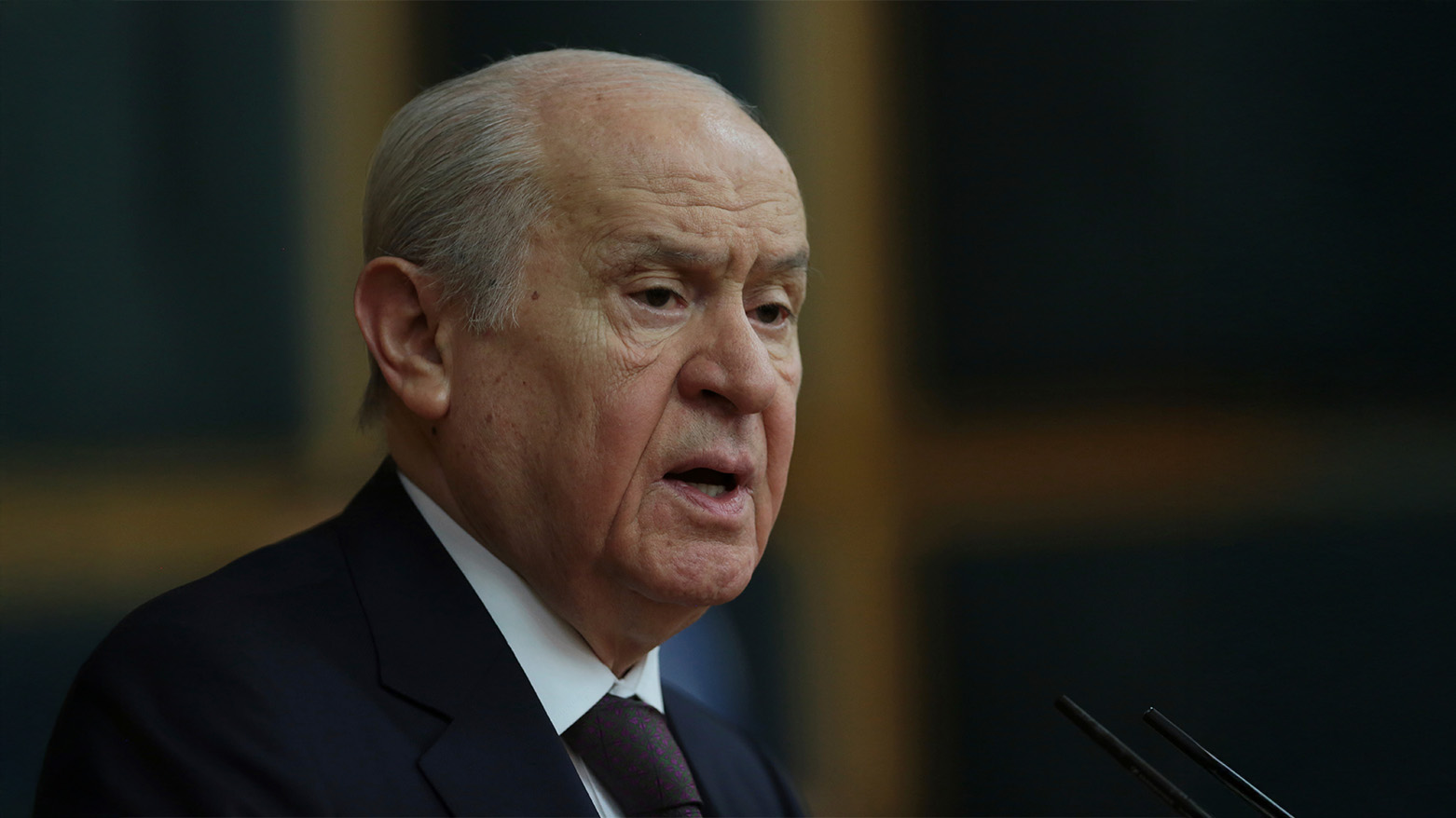MHP’s Bahçeli Sees Ocalan, Qandil Messages as Pivotal
“The message that came from Imrali is valuable and important from beginning to end, and the message that came from Qandil is valuable and deserving of approval,” he stated.

ERBIL (Kurdistan24) – The leader of Turkey’s Nationalist Movement Party (MHP), Devlet Bahçeli, has described the recent messages from both Abdullah Ocalan and Qandil as “important and valuable,” signaling a potential shift in Turkey’s long-standing conflict with the Kurdistan Workers' Party (PKK). His remarks come amid growing discussions on the future of Turkey’s counterterrorism strategy and national unity.
Speaking on March 1, Bahçeli emphasized the significance of the statements issued by Ocalan and the PKK leadership in Qandil.
“The message that came from Imrali is valuable and important from beginning to end, and the message that came from Qandil is valuable and deserving of approval,” he stated.
The MHP leader underscored that the alignment of PKK figures on Ocalan's call is a noteworthy development, saying, “The unity of positions among PKK leaders regarding Ocalan’s appeal and their support for it at this stage is in everyone’s interest.”
Bahçeli further emphasized that seeking political goals through armed struggle is an outdated and unattainable dream, declaring, “The morning of a Turkey far from terrorism has begun, and the day of national peace is about to rise.”
On Feb. 27, through a delegation from the pro-Kurdish DEM Party, PKK leader Abdullah Ocalan issued a call urging his organization to lay down its arms and dissolve itself. His statement, viewed as a turning point in the conflict, has been met with mixed reactions from various political factions in Turkey.
Read More: Abdulla Ocalan calls for the disarmament of PKK
In response, the PKK Executive Committee announced on March 1 that it is declaring an immediate ceasefire in light of Ocalan’s request. However, regarding the demand for full dissolution, the PKK stated: “Ocalan himself should lead the dissolution congress.”
Read More: PKK Responds to Ocalan’s Call, Announces Ceasefire
The latest developments are being closely watched as they could mark the beginning of a new chapter in Turkey’s approach to the Kurdish issue. The MHP’s strong nationalist stance has historically been at odds with any form of reconciliation with the PKK, making Bahçeli’s comments particularly significant.
For years, Ocalan has been a central figure in the conflict between Turkey and the PKK, which has claimed tens of thousands of lives since the 1980s. The Turkish government has previously engaged in peace talks with the PKK, most notably during negotiations between 2011 and 2015, but those efforts ultimately collapsed.
With the PKK leadership now signaling a willingness to consider disbandment under Ocalan’s leadership, the question remains whether the Turkish government will respond with further political and legal measures to facilitate a resolution.
Meanwhile, Turkey’s ruling Justice and Development Party (AKP) has yet to issue an official statement on how it plans to navigate this unexpected shift in the conflict’s trajectory.
As Turkey moves forward, the reactions of nationalist and pro-government factions will be instrumental in determining whether this is truly the dawn of a peaceful resolution or another phase of political maneuvering in the country’s complex and deeply rooted struggle with the Kurdish issue.
Despite the PKK’s declaration of a ceasefire, Turkish President Recep Tayyip Erdogan reiterated Ankara’s firm stance against the group, warning that Turkey would not hesitate to resume military operations if the commitments made by the PKK were not upheld.
Read More: Erdogan Warns of Renewed Assault on PKK if Promises Not Kept
Speaking at a Ramadan fast-breaking dinner in Istanbul just hours after the PKK's announcement, Erdogan dismissed the notion that the ceasefire signified an end to Turkey’s counterterrorism efforts. “We will continue our ongoing operations until we eliminate the last terrorist,” he declared, reinforcing Turkey’s position that no compromise will be made regarding national security.
Erdogan’s remarks highlight Ankara’s skepticism over the PKK’s intentions and underscore the Turkish government’s long-standing policy of maintaining military pressure on the group. While Ocalan’s call and the PKK’s response have generated discussions on a potential path toward peace, Erdogan’s warning signals that Turkey remains cautious about any premature optimism regarding the dissolution of the PKK.